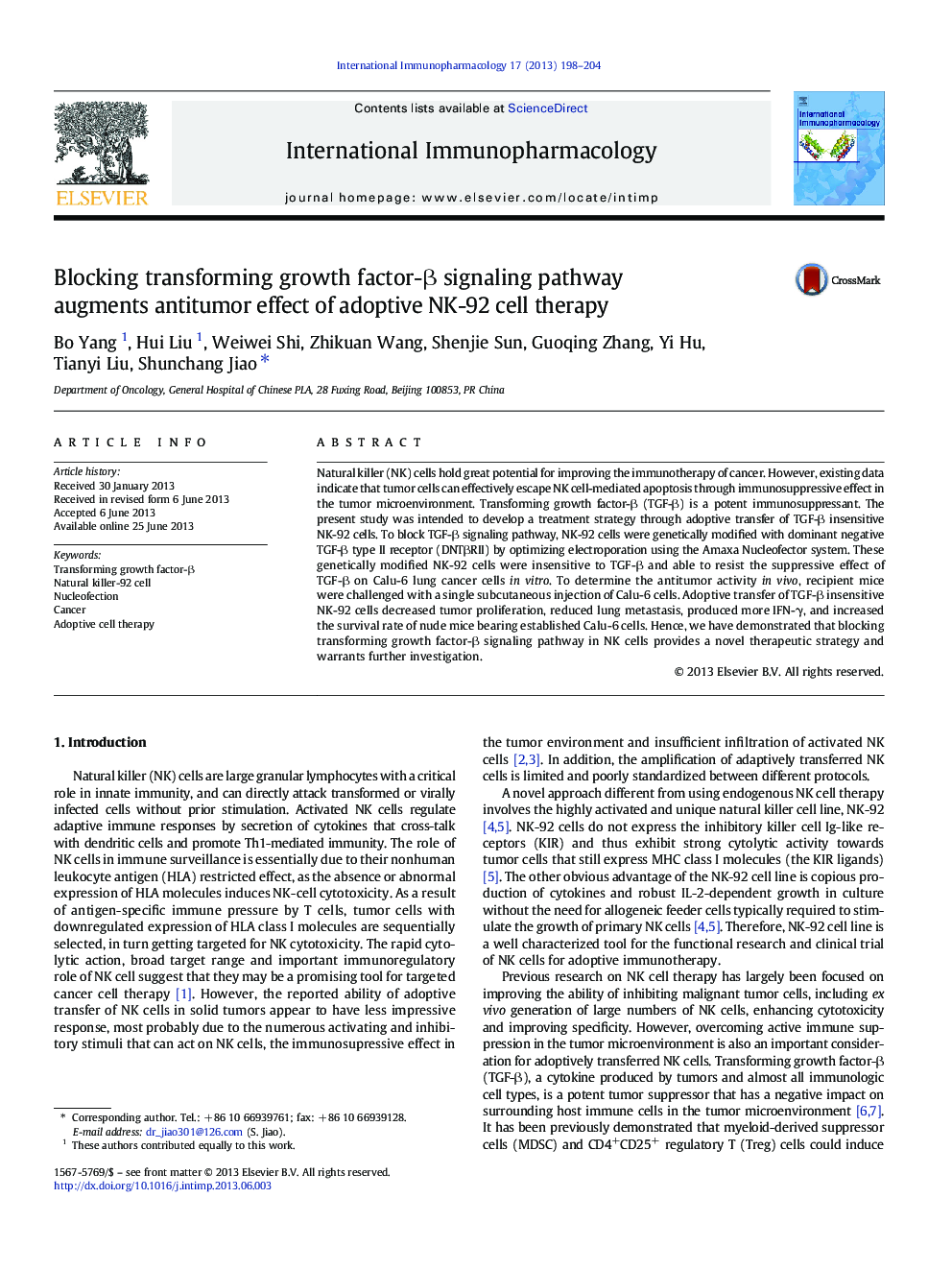| Article ID | Journal | Published Year | Pages | File Type |
|---|---|---|---|---|
| 5833356 | International Immunopharmacology | 2013 | 7 Pages |
Abstract
Natural killer (NK) cells hold great potential for improving the immunotherapy of cancer. However, existing data indicate that tumor cells can effectively escape NK cell-mediated apoptosis through immunosuppressive effect in the tumor microenvironment. Transforming growth factor-β (TGF-β) is a potent immunosuppressant. The present study was intended to develop a treatment strategy through adoptive transfer of TGF-β insensitive NK-92 cells. To block TGF-β signaling pathway, NK-92 cells were genetically modified with dominant negative TGF-β type II receptor (DNTβRII) by optimizing electroporation using the Amaxa Nucleofector system. These genetically modified NK-92 cells were insensitive to TGF-β and able to resist the suppressive effect of TGF-β on Calu-6 lung cancer cells in vitro. To determine the antitumor activity in vivo, recipient mice were challenged with a single subcutaneous injection of Calu-6 cells. Adoptive transfer of TGF-β insensitive NK-92 cells decreased tumor proliferation, reduced lung metastasis, produced more IFN-γ, and increased the survival rate of nude mice bearing established Calu-6 cells. Hence, we have demonstrated that blocking transforming growth factor-β signaling pathway in NK cells provides a novel therapeutic strategy and warrants further investigation.
Related Topics
Life Sciences
Immunology and Microbiology
Immunology
Authors
Bo Yang, Hui Liu, Weiwei Shi, Zhikuan Wang, Shenjie Sun, Guoqing Zhang, Yi Hu, Tianyi Liu, Shunchang Jiao,
